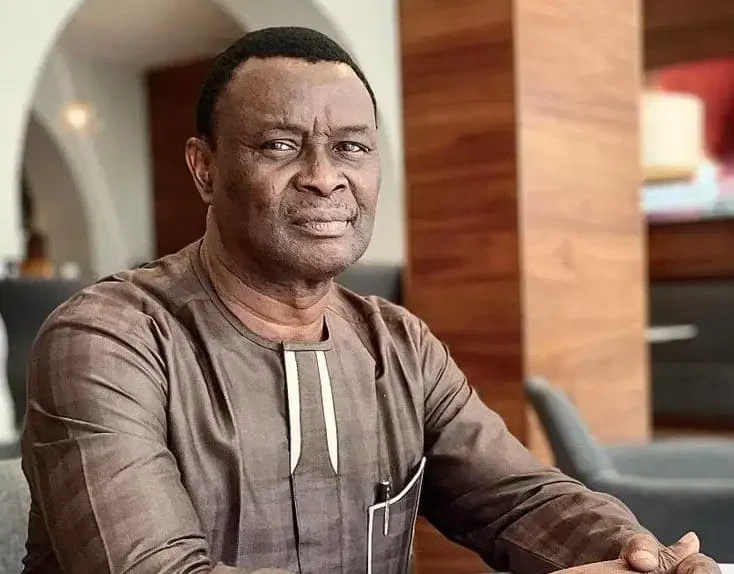Given the critical role labour plays in the life of an administration, the call for a new Minister of Labour and Employment has continued to echo following the resignation of the former, eight months ago, amid pending labour issues, writes GLORIA NWAFOR.
In August 2023, President Bola Tinubu appointed new ministers, among them were Simon Lalong, whom he positioned to take over the affairs of the Ministry of Labour and Employment, while Nkeiruka Onyejeocha seconded him as the Minister of State for Labour and Employment.
They came in when the call for the negotiation of a new national minimum wage was in the offing and other palliatives arising from the removal of fuel subsidies.
Notwithstanding the critical role the labour ministry plays in every nation, a former Labour Minister, Emeka Wogu, in an interview had described the Ministry of Labour as very strategic to the national economy “because a strike that is prolonged can bring down the economy.
“Like in other countries, it is a key ministry. After the Ministry of Budget and National Planning, the next is labour because it is central to the economy of every nation.”
They had resumed with promises to strengthen their relationship with organised labour comprising the Nigeria Labour Congress (NLC), the Trade Union Congress (TUC) and their affiliates towards ensuring that all pending industrial disputes are settled amicably.
While Lalong had pledged that under his stewardship, the Ministry of Labour and Employment would fulfill its mandate to ensure decent work for all Nigerians, Onyejeocha urged all to join hands and support President Bola Tinubu’s administration in conducting the affairs of the country to ensure development and prosperity.
According to her, “Our youths are on the streets and as a ministry, we must take them out of the streets, it is our mandate and we must make that change.”
On his part, Lalong said, “Our workers must get value for their labour and operate in a safe and conducive environment because of the level of unemployment, underemployment, and challenges associated with the work environment.” He added that overall, the ministry shall leverage technology, skill acquisition, entrepreneurship and agriculture among others to open up more employment opportunities for all Nigerians.
Within his short period of leadership, organised labour did not have it well with Lalong, when the NLC alleged that the minister had thrown a spanner in the wheel of the implementation of the Labour – Federal Government agreement by his unmasked partiality in handling a critical item in the agreement, which is the apparent government meddling in trade union matters by siding with people, who had illegally seized the National Union of Road Transport Workers (NURTW) headquarters with police support.
The NLC had alleged that the flagrant act not only constituted an egregious intrusion into the internal affairs of a union, in violation of ILO Conventions 87 and 98, but also represented a clear attempt to sabotage the recently ratified agreement between the labour movement and the Federal Government.
The General Secretary of NLC, in a statement, had said: “It is unfathomable that a Federal Minister of Labour, tasked with safeguarding the rights and interests of diverse stakeholders in our industrial relations landscape, would opt to take actions that could undermine the very foundations of our collective engagement. The Minister’s decision, which is morally reprehensible and legally untenable, marks a disheartening departure from the expected standards of conduct within the nation’s industrial relations sphere.”
While stakeholders in the sector had listed their expectations, with social dialogue and excellent industrial relations topping their agenda, they said the ministers already had their jobs cut out for them.
However, four months into office, Lalong tendered his resignation letter to President Tinubu to take his seat as Senator for the Plateau South Senatorial District under the platform of the All Progressive Congress (APC).
Eight months down the line, the office of the Minister of Labour and Employment remained vacant as the president was yet to appoint another minister to replace Lalong.
This is just as the majority of the ministers are marking their one year in office this August, where stakeholders are assessing their performances one year after.
In the Labour Ministry, it is only the Minister of State that can mark her first anniversary, even though she has taken charge in brinkmanship and in deploying acumen and intellection in tempering Nigerian labour leaders, at least in the two instances they were all out to bring the business of governance to its knees in the country.
 Aborisade
AborisadeAlso, adding to her performance is the successful negotiation and passage of the new national minimum wage, where she midwifed the entire negotiation process of the new minimum wage and also ensured industrial harmony in the labour sector.
It stands to her credit that it was under her leadership that the 2024 new national minimum wage of N70,000 was negotiated with legal backing.
While many had commended her and the good working relationship she has with the labour unions, they however, argued that Tinubu has been unfair to her, stating that since it was a political party that persuaded Lalong to take the senatorial position, Onyejeocha should have been upgraded to a substantive Labour Minister and then a Minister of State should be appointed.
According to them, she was thrown into the ocean where she is. “It is like somebody who was thrown into the ocean of what she was. When former Governor Simon Lalong was the substantive Minister of Labour, she had little or nothing to do because Ministers of State received directives from their substantive ministers,” said a public affairs analyst, Jide Ojo.
Ojo noted, “There have been several other industrial union encounters that she also tried to play a pivotal role to resolve, like the ASUU strike and face-off with government and Nigeria Medical Association (NMA) and other industrial disputes.
“So, she has been playing her role. But I think the one that stands high and shoulder above every other subset she may have recorded in her tenure as Minister of State for Labour is the successful negotiation and passage of the new national minimum wage. She midwifed the entire negotiation process of the new minimum wage and then they have tried to ensure industrial harmony in the labour sector.”
However, others have criticised Onyejeocha, saying that the ministers performed below average.
For instance, a labour lawyer-activist, Femi Aborisade, scored the ministry below performance, saying that under the current dispensation, the wages of the worker are not sufficient to take the workers home and the worker is not free to exercise the right of expression as peaceful protests have been criminalised and turned into a terrorist act.
“In the circumstances, by the quality of living standards and the fundamental freedoms of the worker, the performance of the Minister or Minister of State for Labour, as the case may be, is uninspiring and an abysmal failure.
“A new minimum wage has been set, which lags behind the cost of living. Since the passage of the new minimum wage Act, fuel prices have risen to a record high, thus rendering the new minimum wage a huge joke. The new minimum wage is yet to be implemented anywhere.
“It is under this regime that the headquarters of the NLC was raided at night. The President of the NLC has been invited by the Police on trumped up allegations of terrorism financing and other heinous offences, all because labour dared to criticise the government for the repression of youths, who carried out the #EndBadGovernance hunger protests,” he said.
Similarly, a labour lawyer, Paul Omoijiade, said the absence of a substantive minister was felt when labour embarked on strike, and the attendant loss of manpower before the government came to the negotiation table to agree on minimum wage, stating that the ministry could have taken pre-emptive steps to avert such occurrence.
“The Ministry of Labour is supposed to be in the forefront, but you discover that there has been a lull since the resignation of the former minister.
“Labour creates wealth, and the country cannot grow if the infrastructure cannot grow the economy, you need the human capital, which is labour, to grow the economy,” he said.
Assessing the performance, Omoijiade added that on labour productivity, which is a function of many factors, the ministry has scored below average.
On his part, the Director-General of the Nigeria Employers’ Consultative Association (NECA), Adewale-Smatt Oyerinde, called on President Bola Tinubu to appoint a technocrat as the new Labour Minister, following the resignation of Lalong.
Oyerinde said the association’s position remained that whoever was coming to the Ministry of Labour, the government would do well to appoint somebody who understands the ecosystem.
According to him, the time for learning the roles is limited, as the country needed somebody strong and technically sound within the context of the labour and industrial relations ecosystem, as well as somebody who understands the context of the task at hand.
“The learning curve is less because the person has to hit the ground running. So, we hope the president hacks into those requests to get a technical expert. It is less of a bureaucrat or a politician to be a minister of labour. I think it is a technical person, who understands both the technical and the political context of the whole ecosystem that can survive in that environment.
“If we search strictly, we have many of them around us, whether in this country or out of the country. Once they are Nigerians, we believe they can make their mark in that ecosystem,” he said.

 2 months ago
91
2 months ago
91















 English (US) ·
English (US) ·